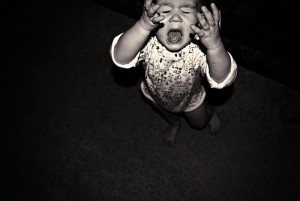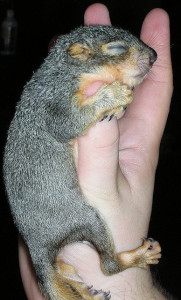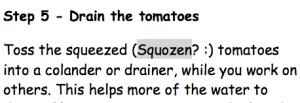
CC image courtesy of dangerismycat on Flickr. Some rights reserved.
There is an unforgettable scene from Monty Python’s The Life of Brian, in which Brian addresses a crowd of people.
Brian: You are all individuals!
Crowd (in chorus): We are all individuals!
B: You are all different!
C: We are all different!
Bystander: I’m not–
C: Shhhh!!
For anyone working in creative industries — or, let’s face it, technology — there is an incredible pressure to produce something new, original, unique… and the problem then becomes, is there, in fact, anything new under the sun? Or are we all just working on a better mousetrap?
Influence versus Imitation
In the history of literature (or music, or movies, or TV shows), how many love stories or coming-of-age stories have already been written? In the smaller universe of personal development and self-help, how many different ways can we think of to say “No fear!” and “Trust!” and “Try!”? How many rock songs or blues songs or operas already exist? How many pianists are brilliant and how many artists know how to paint or to sculpt or to draw or to photograph?
I’m a member of several online music communities. In addition to the specific musicians in whose name(s) the communities have been created, members often discuss other musicians whose music they enjoy. These other musicians might have taken a lot of musical influences from Musician or Musicians A. Periodically, community members would get into vociferous disputes with each other about these other musicians, and whether the musical similarities (outlined in technical detail according to each arguer’s musical instrument of choice) were really just INFLUENCES, or if the musicians were actually IMITATING Musician A, without contributing anything unique or original of their own.
These were scorched-earth battles, and I saw a lot of them rage online over the years. Occasionally the situation would become so extreme that one or all arguers would be banned from the online community or would leave in a huff of their own accord, spewing profanities.
The question began innocently enough in each individual’s mind, and is close to my own mind today: what is originality? Can we define it? Shouldn’t we strive for it? … Or, as I increasingly believe, is originality the wrong goal to aim at?
“Be yourself; everyone else is already taken”
Artists often struggle with this. Influence and inspiration have a central place in the development of any artist. We all started by admiring the work of others. When we began, our influences could sometimes be painfully clear. In my early days of story-obsession, I just about oozed Mary Higgins Clark. I had no difficulty answering the question, “Who’s your favorite author?” Neither did anyone else.
We are influenced by our predecessor artists, just as I for a time strove to write mysteries and thrillers featuring a plucky heroine facing personal challenges. Sometimes, we consciously copy our inspirations. Both forms of practicing our art are valid.
On the other hand, as Oscar Wilde points out with his trademark razor-sharp wit, it’s no good trying to be them.
We already have a Hemingway, a Charlotte Brontë, a George R.R. Martin, and a Maeve Binchy.
If I simply rewrite what Stephen King wrote, no one’s ever going to remember any of my work. They’ll (rightly) remember Stephen King. I might even help them to remember him. But am I not doing a disservice to my audience?
What if my audience is there for me?
I went to a meeting of the local chapter of the National Speakers Association this month. The keynote speaker told the audience: “Nobody is there to hear your content. Even if you are a content speaker. I’m sorry, they can find that for five dollars on Amazon, or for free on Google. They aren’t there to hear your content. They are there for your performance.”
Setting up a new goal
Which is why people who like love stories or coming-of-age stories will continue to read the new stories of this kind that we create… even though they’ve read other stories before. This is why people who love paintings or sculpture or photography will seek out more, although they’ve seen other photographs, paintings, and sculptures. It’s why people still listen to music, although they’ve heard other music before.
The question then, isn’t about originality. The question is, what is it about me that I can bring to my art?
That’s what we are here for.
== == == ==
Do you struggle with being “original” in your art?




